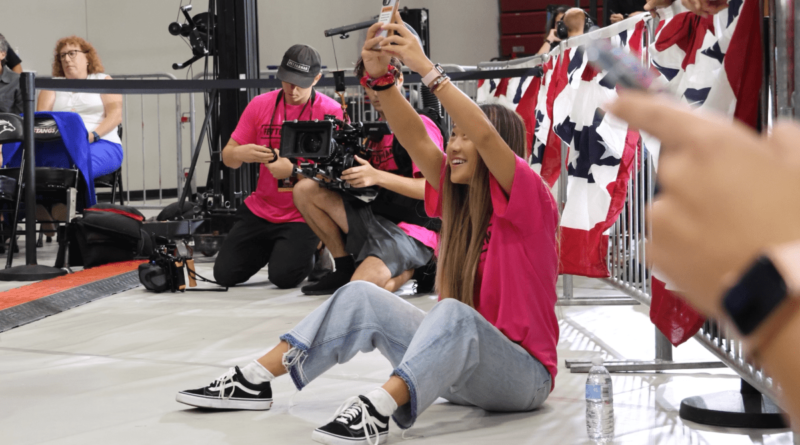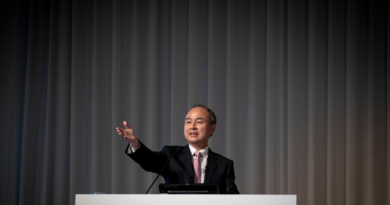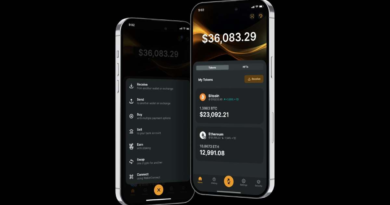‘TikTok whisperer’ Annie Wu Henry on social media and 2024
Connecting with the youth is a craft that has long eluded the Olds — a demographic that’s less defined by age than it is by social media habits. Politicians, historically, have not prioritized young voter outreach.
But in recent elections, the youth voter turnout cinched major wins for Democrats, and as the 2024 presidential election looms ahead, Republicans are still falling behind in their digital strategy. Age alone isn’t enough to convince 18- to 29-year-old voters, who overwhelmingly backed Democrats in the midterm elections, to show up to the polls.
Candidates are expected to be content creators as much as they are politicians. Pennsylvania Sen. John Fetterman, for example, became a TikTok star over the course of his campaign. Between trolling his opponent Mehmet Oz and jumping on trending TikTok sounds, Fetterman’s apparent meme fluency was wildly popular with young voters.
Others, both on the left and on the right, fumbled their social media strategy with forced pop culture references and desperate attempts at being cool. They were dismissed as cringe, a branding worse than any scarlet letter.
Digital fluency doesn’t always come naturally to those who didn’t grow up online. Bad at posting? Hire a strategist.
Enter Annie Wu Henry, the digital strategist and “TikTok whisperer” behind Fetterman’s campaign. In an interview with TechCrunch, Henry explained what Vivek Ramaswamy did right, where it went downhill and why Gen Z just doesn’t put up with bullshit.
This interview has been condensed and edited for clarity.
TC: So you worked with Fetterman — obviously, this makes you an expert on this. What was your first reaction when you saw Jake Paul endorsing Vivek Ramaswamy?
AWH: I think, at large, we’re going to see much more of that cultural play, if they’re doing it. A lot of the influencers that we look at as likely right-leaning, like Joe Rogan, are political entities. Joe Rogan’s podcast isn’t a “political podcast.” Andrew Tate, even, is not a political being. Obviously, everything’s political.
But these people are very much in the right-wing media, any kind of ecosystem of media that allows these ideologies to be perpetuated in a cultural and widespread way. If they were only to be spouted from politicians and people in politics, it wouldn’t have the same ability for reach.
I, for example, am a young woman of color. I am pretty politically active. I like what I keep up with, what music I listen to, et cetera, and I don’t get a lot of these things. For example, I didn’t know that Andrew Tate had a brother until way after that was out there. I try to avoid his content because I don’t want to get more, but I don’t get fed a lot of it because I think these platforms know that I am not the target demographic that’s likely to continue to be interested in that. However, I talk to my guy friends that are my age, or guys in their 20s, 30s, and people that are younger, even. That is all they’re fed, even if they don’t want to be seeing that type of stuff.
And so people like Jake Paul, I think, easily fall into that category. And because of his start on YouTube and particularly with young people, he’s right in that space that, if utilized by people on the right and politicians, has a potential to be really impactful.
Definitely. I just talked to a professor who researches political influencers and he was like, we’re seeing a whole class of influencers who are distinctly basing their entire platforms around social issues, and you’re seeing a separate class of creators who happen to be giving out endorsements. And the question is, who is the one who has more influence?
That is something I am so, so interested in doing more with in my work, because we have this class of political influencers on the left and on the right. And a lot of times, these people are really great vehicles to get out information, to get people to take action, to keep young people informed and engaged. It’s not necessarily exactly the same thing as watching C-SPAN every day, but it is getting in depth on a lot of these issues. It’s pretty consistent news.
And so that is really good to get the young people on these platforms educated. However, how we understand that these algorithms and For You Pages and things like that work, is that people have to show that they’re interested in receiving that information and interested in receiving that content.
And so if there is someone who, for example, is just really into sports, or just really into comedy, or is just really into whatever it might be, if they’re on these platforms enough and staying engaged and active in a natural way, they’re going to continue to be fed that content that they want and from people that they want. They’re not going to get some of the reports on the news on their For You Page because the algorithm, and these platforms, are going to say, “That’s not what this person is likely to engage with.”
So I think there is a lot of power, especially in the people who are maybe less political or apolitical or unengaged, to be impacted heavier when it’s from someone that is not a “political influencer.”
A lot of the time, it’s easier to get political influencers to be talking about these things. Because it’s what they care about and put their time and energy into. But it’s when these other people get political, and it doesn’t even have to be in large senses — it can be that they talk about an issue or something happening in the news that happens to have political undertones.
I think like, again, with Jake Paul, people aren’t thinking that they’re being fed political content, even though that ends up being the case, right?
So knowing the reach that Jake Paul has to people who, frankly, probably aren’t interested in politics — do you think that the Ramaswamy campaign picking Jake Paul specifically over some right-wing Twitch streamer was a calculated move? Because when I first saw it, I was like, “Well they probably don’t know anything about TikTok. Why would they pick Jake Paul?”
I mean, on the right, I think that some of the stuff they do is not on purpose.
That’s what I was wondering.
It’s not as purposely as smart as it sometimes is, right? I have looked at Vivek’s TikTok rollout and some of the things that he’s doing, whether on purpose or not, there is some good TikTok strategy behind it.
For example, a lot of Jake Paul’s TikTok following is probably non-political. I would assume his demographics are like, 12- to 25-year-old boys.
The endorsement did not really talk about the issues. It just said that he cares about young people, and he is going to be different, and that is what young people want out of politicians. Young people don’t trust systems, they don’t have super heavy loyalties to a political party.
His first TikTok, if you had it written down, and someone read it without it being about someone specific, is what young people want. It is someone who’s different, someone who’s not going to be a corrupt politician or is outside the system, is someone who understands your issues. A lot of his messaging is for how Gen Z wants to be spoken to, especially being on that platform.
However, I will caveat all of this by saying that as a candidate, this makes it tough to actually then be fully effective, because, I forgot what he called it, but he’s criticized TikTok…
He said it’s digital fentanyl or something like that.
Digital fentanyl from China or something like that. He wants to take away voting for people 18 to 25 unless they serve in the army or take a civics test. I am pro civics, but that is unlikely what he is envisioning. I think that it’s a form of voter suppression, as he wants it.
His attacks on young people then negate all of this perhaps accidental strategy that was good, right? That’s then why we see young people who are engaged and going to seek that out, and going to troll him and ratio him in the comments.
If you were to watch this video, and not know who it is and say, “He’s making some good points,” but then see that he’s being relentlessly trolled by young people, hopefully it will draw some questions.
In general, why the right has issues effectively communicating with Gen Z and effectively being up in these spaces, is because a lot of their messaging and stances are things that Gen Z overwhelmingly does not like.
Fetterman’s campaign is what every candidate trying to get that youth vote is trying to emulate. What is missing on the right?
I think it’s really hard for a lot of these people on the right, they’ll act in ways that go against things that they’ve said. Gen Z sees that, and if you know anything about that generation, they just don’t buy it.
That’s so much of what platforms like TikTok and Twitch cater to, and why they thrive on those platforms, because you can just pull out your phone and be talking while you’re getting ready with the worst angle possible…
I think it’s really hard, with Vivek as a key example, to say it’s digital fentanyl, and to be on the platform and be like, “I’m gonna be here because this is where you guys are at.” Like you want to get rid of this, so why are you really here? None of that can actually feel authentic.




